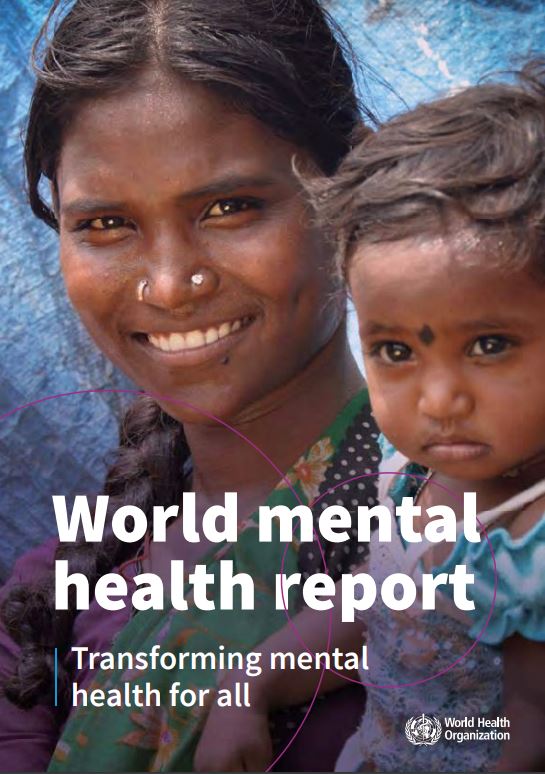Source: World Health Organisation (Published in June, 2022)
“WHO Member States adopted the Comprehensive mental health action plan 2013–2030. They committed to meet global targets for improved mental health. […] But WHO’s latest analysis of country performance against the action plan shows that progress has been slow. For most of the world, the approach to mental health care remains very much business as usual.”
“This report is designed to inspire and inform the indisputable and urgent transformation required to ensure better mental health for all. While promoting a multisectoral approach, this report is especially written for decision-makers in the health sector. This includes ministries of health and other partners in the health sector who are generally tasked with developing mental health policy and delivering mental health systems and services.”
Key takeaways
- “Overall, digital technologies have the potential to contribute substantially to national efforts to achieve universal mental health coverage. They reduce travel time and expense. They provide flexibility to fit around people’s daily schedules. And their anonymity can help avoid barriers created by stigma.”
- “Of course, digital technologies for mental health are not without their risks. In all cases, digital interventions should be guided by ethical principles and implemented in line with professional codes of conduct. Key areas of concern are: privacy, data protection, safety and accountability (267). Availability and fairness are also important issues, especially as many people – especially those with fewer resources – may not be able to access digital technologies”
5 areas showing great promise
- Digital technologies to inform and educate the public
- Digital technologies to train health care workers
- Digital technologies to support non-specialist providers
- Digital technologies for remote care
- Digital technologies for self-help
Read the full report on the WHO website






